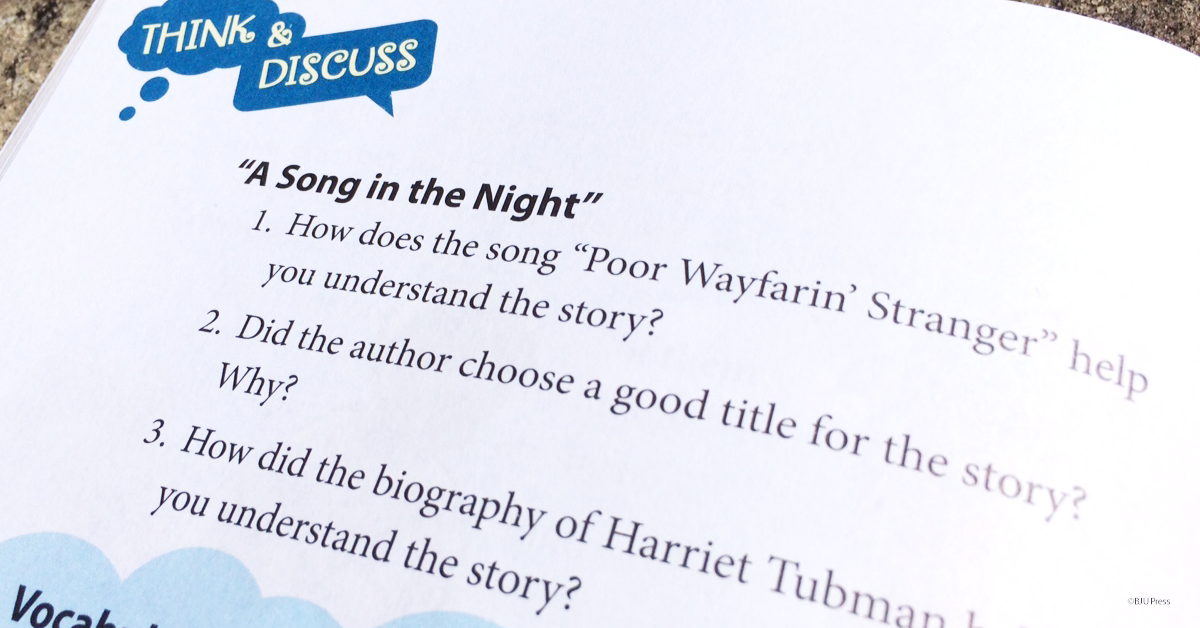
Much of your child’s success in learning depends on the questions you ask him and how you ask them. Research shows undisputed benefits from asking questions to develop reading comprehension. These questions help children of all ages put what they’re learning into a context that they can discuss, and those who answer comprehension questions learn more subject matter than their peers who do not. Asking your child questions also helps him discover his own ideas. It also gives him an opportunity to explore his creativity and to sharpen critical-thinking skills.
But like most homeschooling parents, you already know the need to ask questions to ensure that your child is learning. In order to teach effectively, you also need to know that you’re asking the right kind of questions. Consider these steps to improving your questioning method.
1. Develop your child’s thinking skills by asking questions that go beyond content.
- Use questions that require comparing, evaluating, and discerning. (Why? What if? What is the evidence? What are the alternatives? What are the implications? What do you think is right?)
2. Give your child time to answer.
- Don’t expect an immediate response. Five or six seconds of silence is not much time to allow for a well-developed response.
- Be willing to accept an unconventional answer. Don’t dismiss an answer simply because it didn’t use the terms in the way that you wanted. Your child may be thinking along the right lines but maybe unable to express the answer in the correct terms. Take the time to help your child restate his answer.
3. Help your child think toward the right answers.
- If your child doesn’t understand the question or answers incorrectly, ask simpler questions that help build up to the question you asked initially. If your child has trouble explaining why a sentence is grammatically incorrect, ask about the functions of the words in the sentence (which word is the verb? Is it transitive or intransitive? If it’s transitive, doesn’t it require a direct object? Is there a direct object?).
- Demonstrate for your child how you arrive at conclusions by walking him through your own questioning process (how you decided to make a difficult purchase or what leads you to endorse a particular political candidate).
If you help your child by demonstrating good questioning practices, he will not only learn course content but also learn how to ask questions in order to arrive at the answers for themselves. And isn’t that the whole point?
For more insights on questions, consider the discussion sections in our BJU Press curriculum Teacher’s Editions.
Leave a Reply